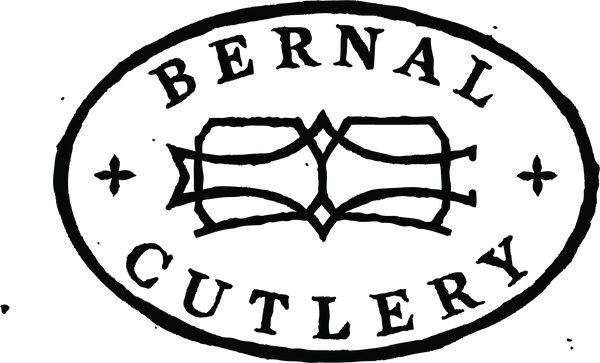-
Currency
-
NEW
- All New Products
- New Kitchen Knives
- New Kitchen Tools
- Latest Vintage
- New Outdoor & Utility
- New Pantry
-
What's in my Basket Series
- Ryo Sakai -Kuma Sushi
- Ian McNemar - Woodworker, Instructor
- Anna Voloshyna - Author
- Jorge Martinex Lillard - Lolo´
- Chris Yang - Piglet & Co
- Griffin Wilson - @cabincorn
- Gabe Rudolph - Gestura Utensils
- Marc Schechter - Square Pie Guys
- Molly DeCoudreaux - Food Photographer
- Geoff Davis - Burdell Soul Food
- Jen and Wes - @crazythickasians
- Josh Donald - Bernal Cutlery
- Kelly Kozak - Bernal Cutlery
- Jessica Sullivan - Poppy SF
- Sylvan Mishima Brackett - Rintaro
- Michael Myers - Film Character
- Ali Hooke - @alihooke
- Bruce Hill - The Chef's Press
- Dylan Carasco - Butcher's Guide
- Spencer Horowitz - Hadeem
-
Japanese Knives
- Ashi Hamono
- Gihei Knives
- Godo Tadaharu
- Hado
- Hatsukokoro
- Hitohira
- Jiro Nakagawa
- Iwasaki Kamisori
- Kaji-Bei
- Kamo Shiro
- Kanehide
- Konosuke
- MAC Knife
- Masakane
- Makoto Tadokoro Marushin
- Mizuno Axes
- Morihei
- Myojin Riki Sesakusho
- Nakagawa Hamono
- Naozumi
- Nigara Hamono
- Sakai Kikumori
- Shigefusa
- Tagai
- Takada no Hamono
- Tanabe Tatara
- Yoshikazu Tanaka
- Tosa
- Tsukasa Hinoura
- Yoshikane
- Wakui
-
Global Knives
- Allday Goods (GBR)
- A Wright & Son (GBR)
- Blenheim Forge (GBR)
- J Adams (GBR)
- John Nowill & Son (GBR)
- Wood Tools (GBR)
- Au Sabot (FRA)
- Chazeau Honoré (FRA)
- Fontenille Pataud (FRA)
- K Sabatier (FRA)
- David Margrita (FRA)
- Opinel (FRA)
- Eichenlaub Tableware (DEU)
- Friedr Herder (DEU)
- Windmühlenmesser (DEU)
- Florentine Kitchen Knives (ESP)
- Pallares (ESP)
- Helle (NOR)
- Andersson & Copra (SWE)
- Hults Bruks Axes (SWE)
- Kalthoff Axes (SWE)
- Morakniv (SWE)
- Iisakki Jarvenpaa (FIN)
- Zirh (TUR)
- Alma Knife Co. (USA)
- Bernal Cutlery (USA)
- Benchmade Knives (USA)
- Buck Knives (USA)
- Dexter Russell (USA)
- Rolin Knives (USA)
- Silverthorn (USA)
- Steelport Knife Co. (USA)
- Tactile Knife Company (USA)
-
Styles
- Bernal Cutlery Collaborations
- Knife Sets
- Carving Sets
- Japanese Kitchen Knives
- Western Kitchen Knives
- Chinese Style Cleavers
- Bread
- Butchery
- Cheese | Charcuterie
- Young Chefs
- Woodworking | Hobby | Craft
- Kamisori Razors
- Table | Steak
- Pocket & Folding
- Fixed Blade, Axes & Outdoor Tools
- Scissors | Shears | Snips
- Left Handed
- The Vault
- Vintage
- Sayas | Guards
- Sharpening
- Kitchen | Cookware
- Tableware | Service
- Pantry
- Accessories
- Deals
- Gift Cards
- INFO
or
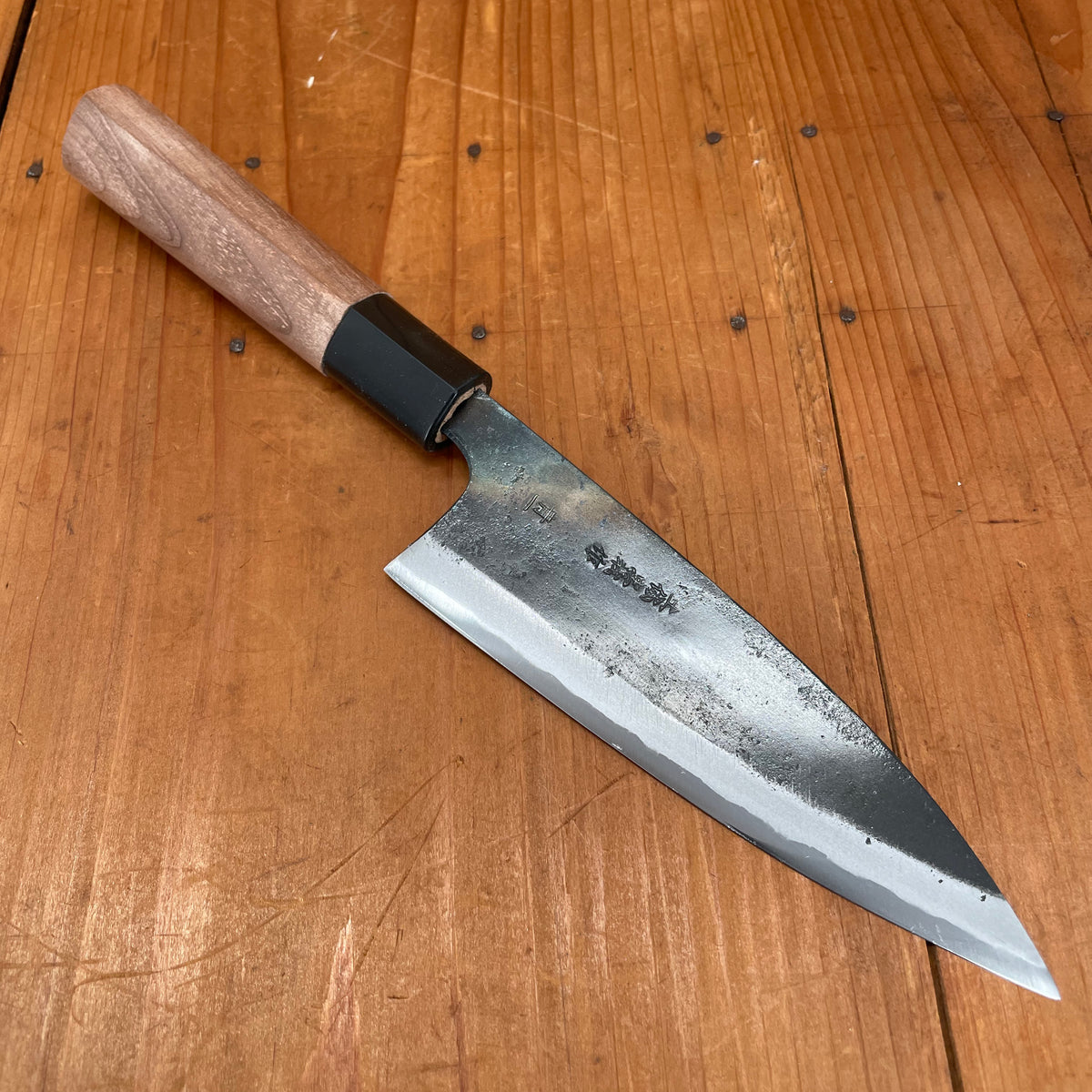
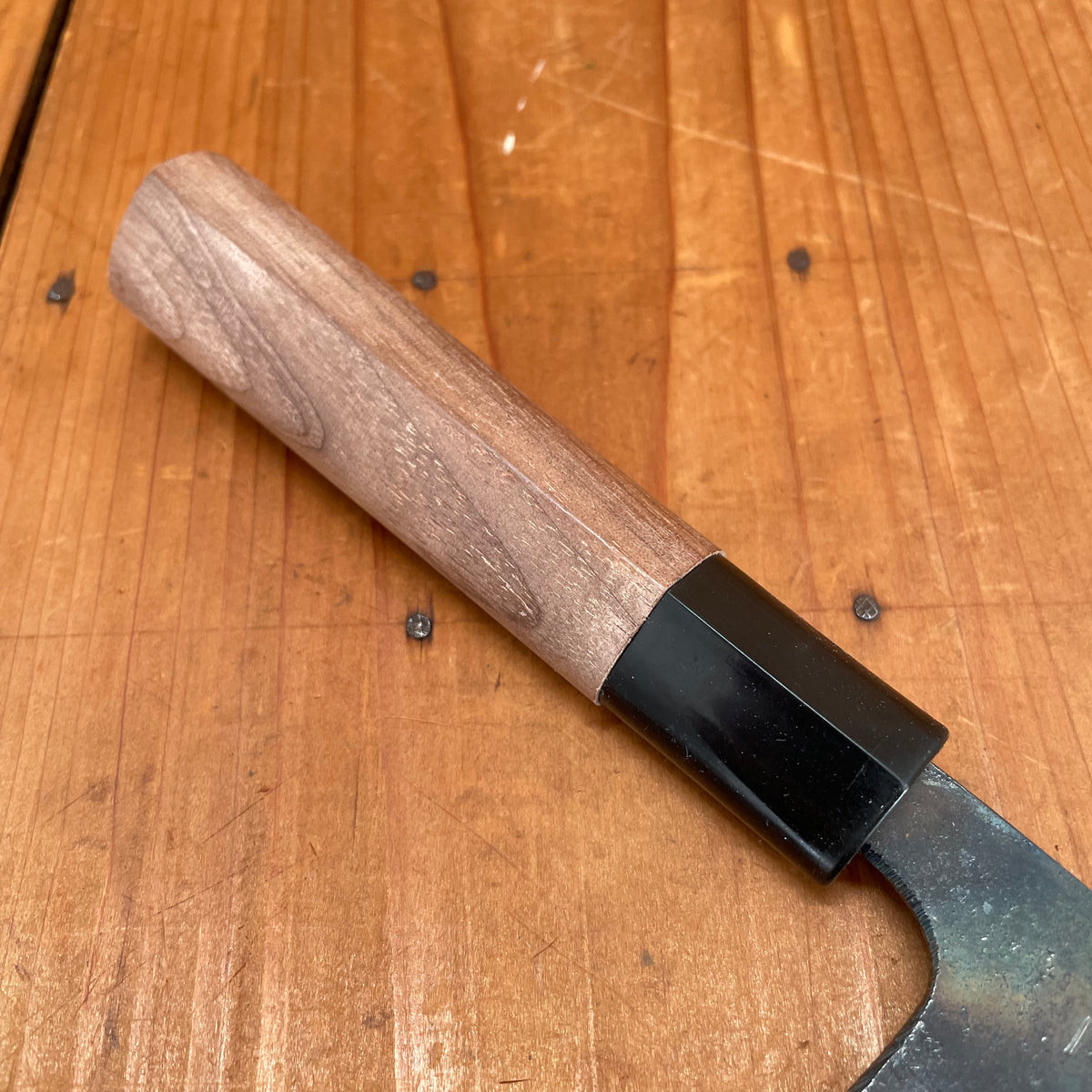
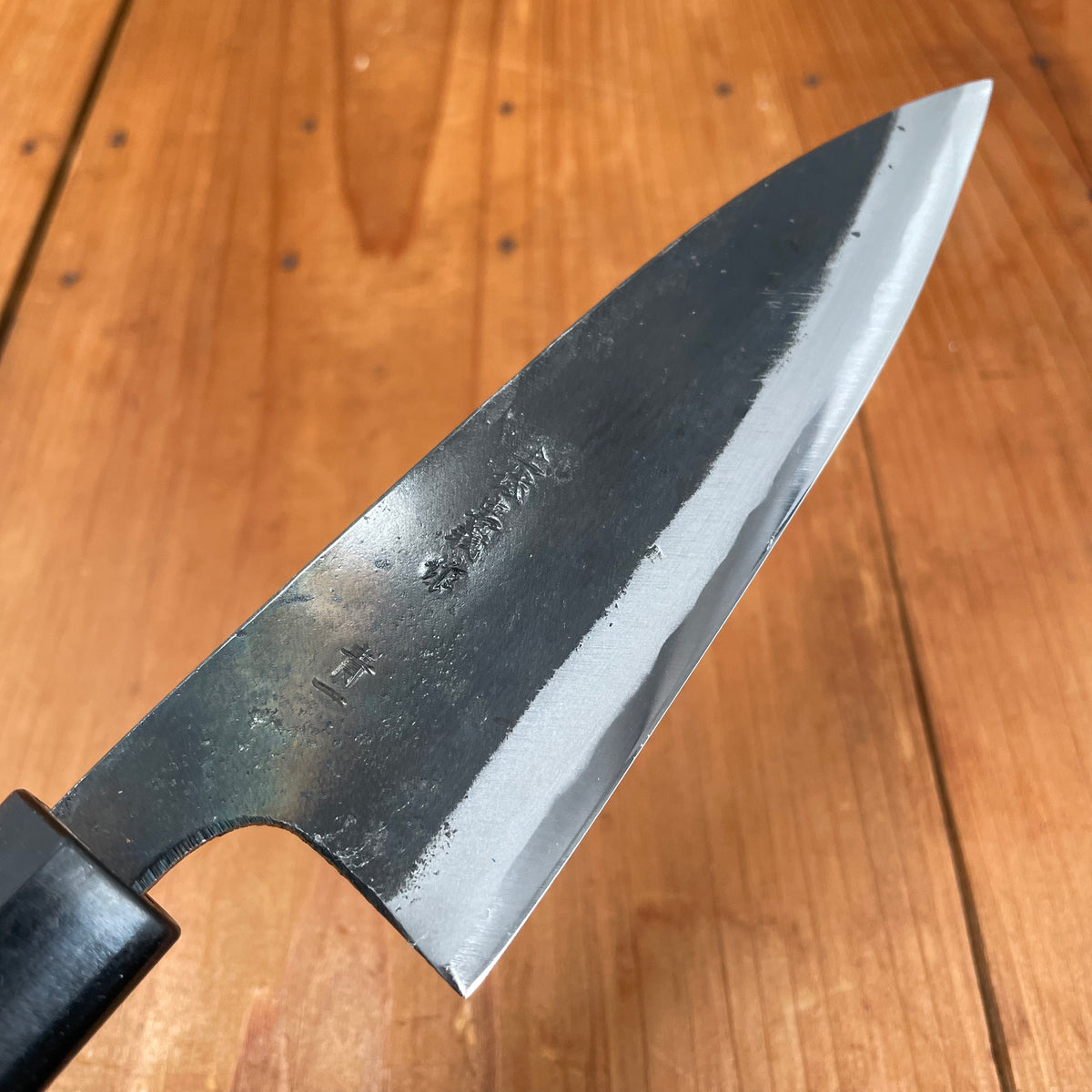
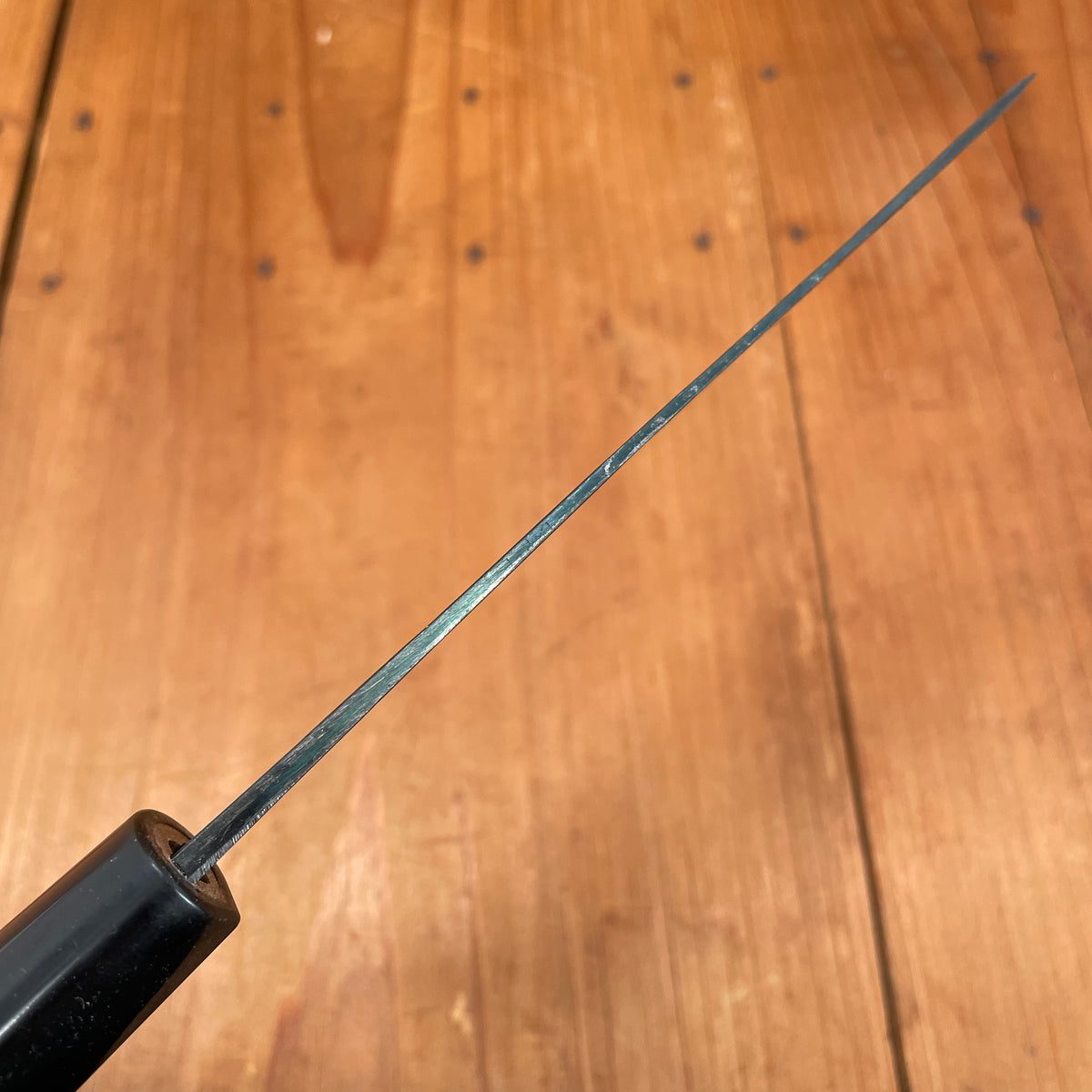
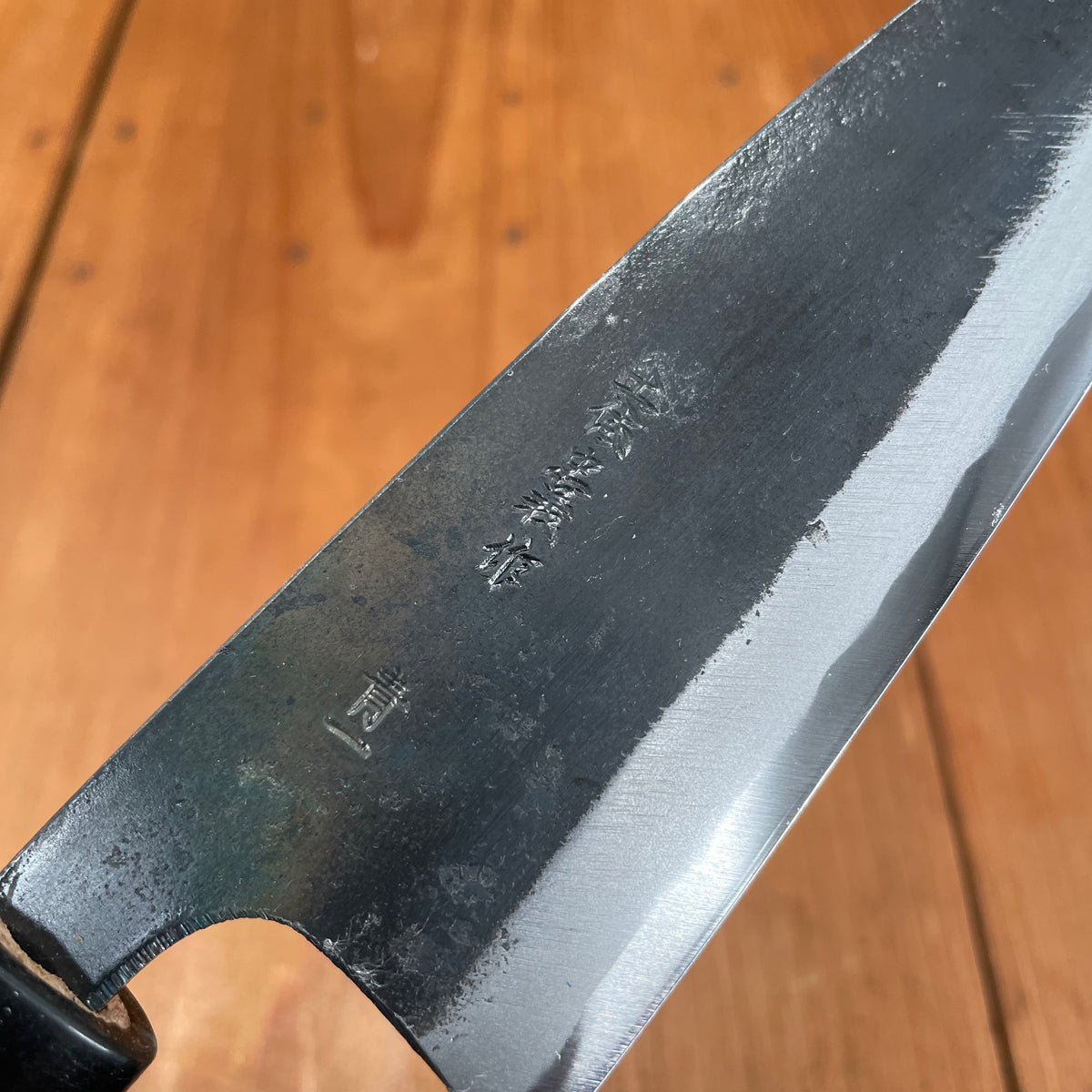
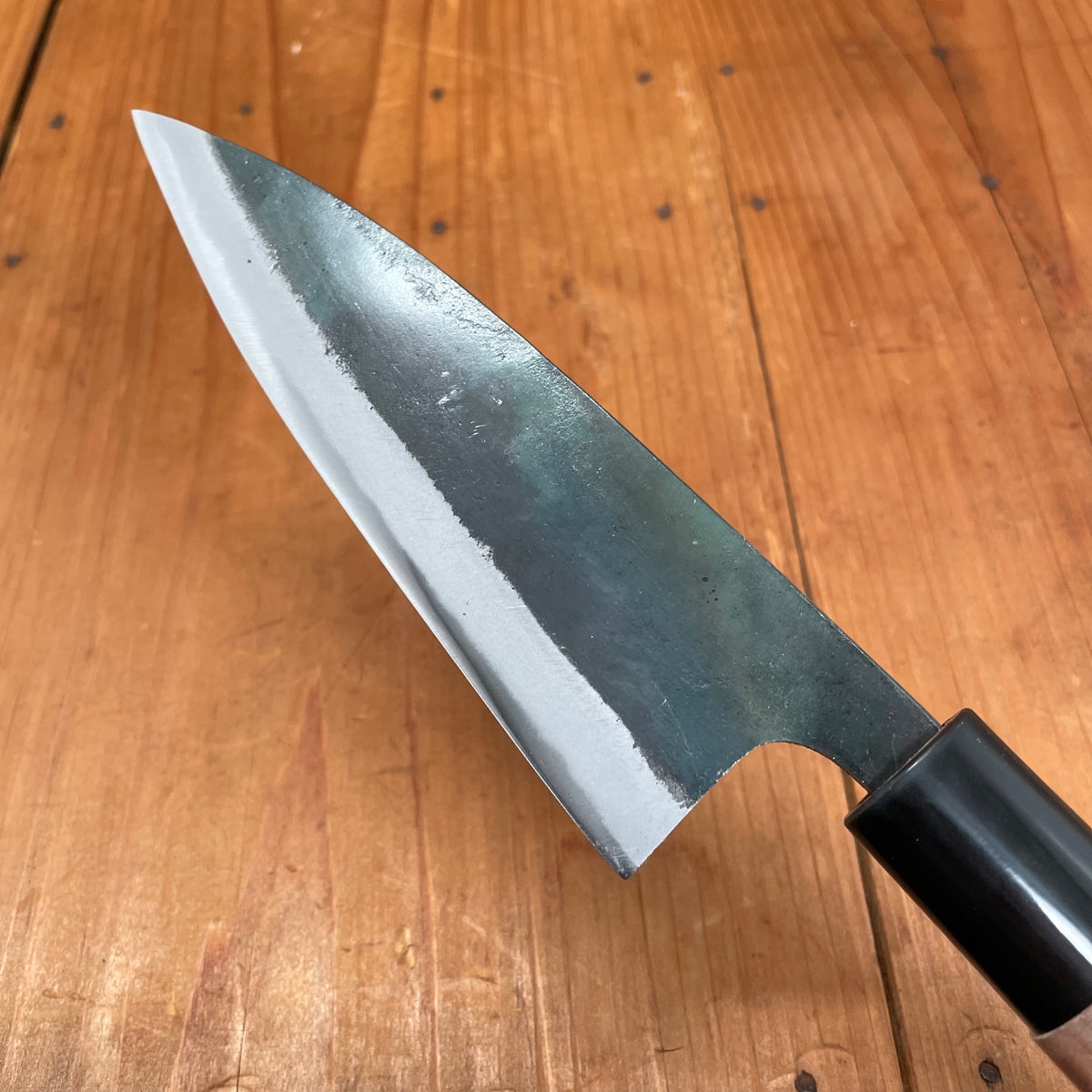
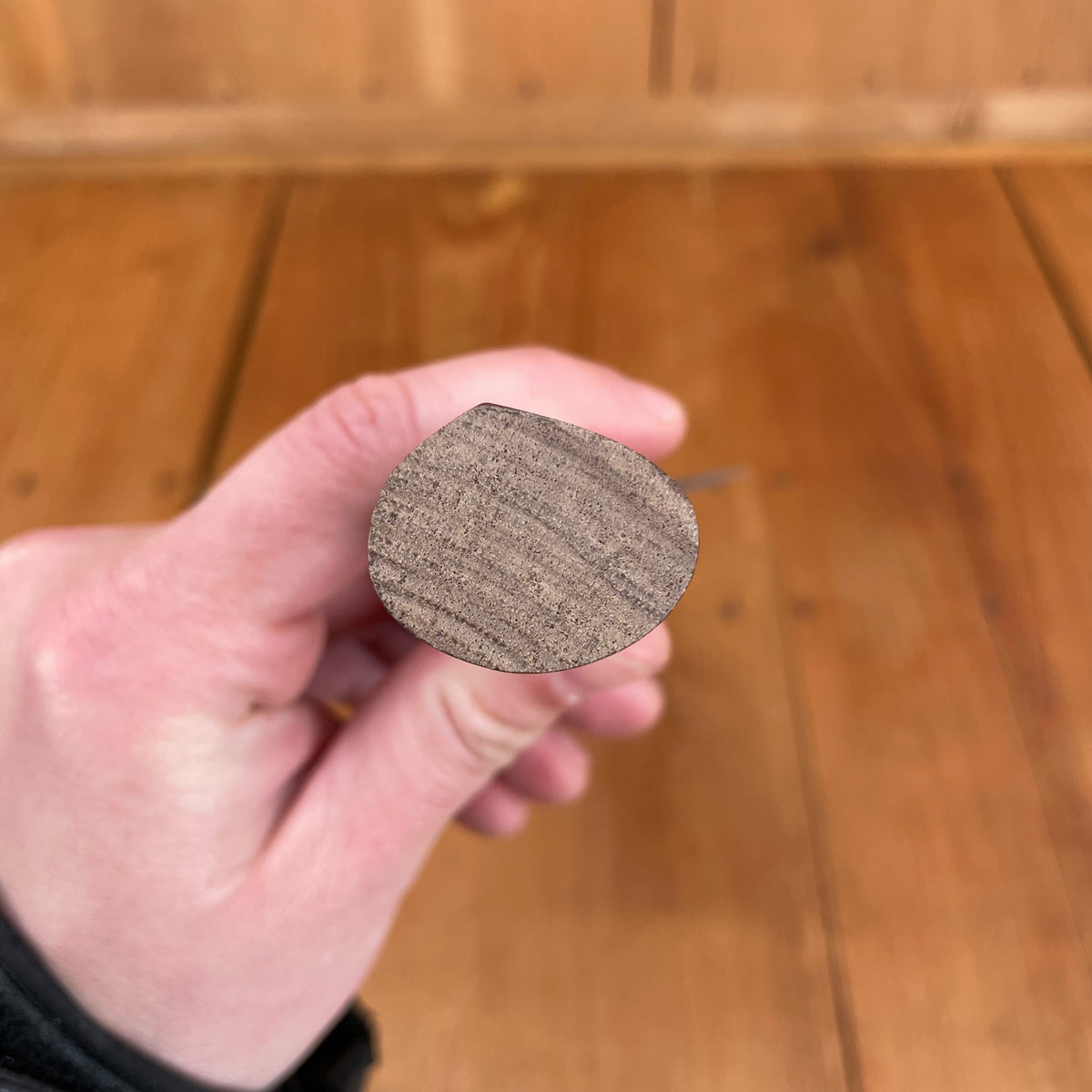
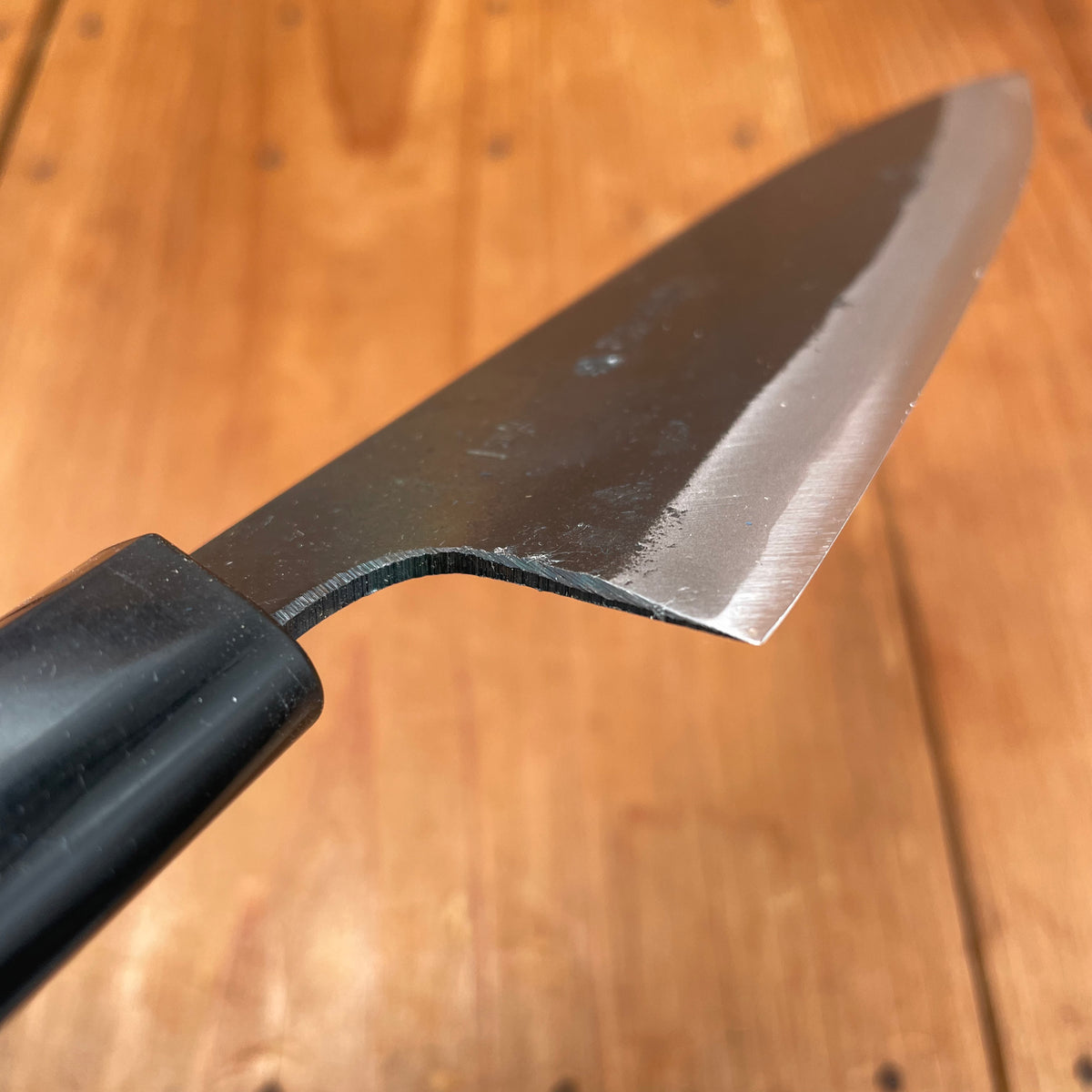
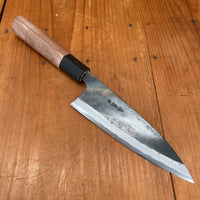
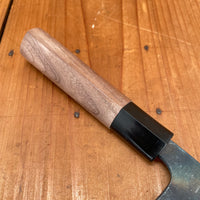
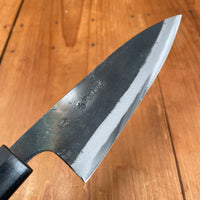
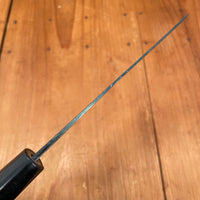
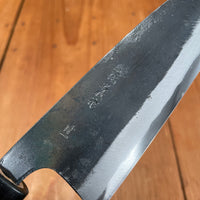
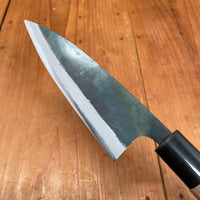
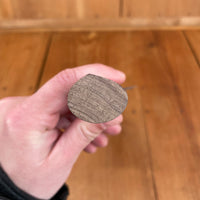
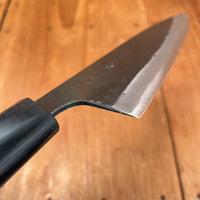
Tosa Tadayoshi 135mm Funayuki Aogami 1 Walnut/PC
-
Regular Price
-
£46.98
-
Sale Price
-
£46.98
-
Regular Price
-
Sale
Sold Out
-
Unit Price
- /per
- Regular Price
- £46.98
- Sale Price
- £46.98
- Regular Price
- Unit Price
- /per
Tosa Tadayoshi 135mm Funayuki Aogami 1 Walnut/PC
approx 94 grams 136mm cutting edge, 43mm wide at heel, tapering from 2.5mm thick, 268mm overall. Free forged knives vary slightly
Hand forged knives from the Tosa area of Shikoku Island, Japan's least populated island with a long history of smithing. Shikoku's thick forests, agriculture and fisheries have led to a local style of smithing that is characterized by rustic free forged knives and tools. Many Tosa knives are ryoba style; forged and ground symmetrically and are suitable for both right and left hand users.
We have been very happy with the quality for the price and their old style country feel.
Funayuki are symmetrical ryoba ground san mai knives, forged and ground thin for vegetables and boneless proteins.
This is a reactive carbon steel. It should be mentioned that extra care is required, as the knife is not stainless and should be dried immediately after use. It will develop a dark patina with usage, but any orange rust should be removed with a light abrasive.
These knifes come from the maker with lacquer on the blade for corrosion protection during shipping. It can be removed using acetone or lacquer thinner (follow manufacturers instructions for use).
We can remove the lacquer prior to shipping for $10. Enter "Please remove lacquer" in the +Special Instructions on the Cart page and you will be invoiced separately via email. This could delay shipping by up to 5 days and won't be shipped until payment is made.
approx 87 grams 141mm cutting edge, 42mm wide at heel, tapering from 3mm thick, 273mm overall. Free forged knives vary slightly
This is a carbon steel knife. Carbon steel is expected to develop a dark patina with use. It needs to be hand washed and dried immediately after use. Do not air dry. Do not put it in the dishwasher. Long exposure to moisture and debris will result in rust. Any rust development should be removed with a light abrasive.
Twisting, scraping, and heavy use, as well as use on hard and very dense objects can lead to edge damage. Use on a quality wooden cutting board will help the knife stay sharper for longer. Use on hard surfaces like plates and bamboo will reduce the edge life and can result in edge damage. Special attention needs to be taken to prevent edge damage. Scraping, twisting and forceful as well as using on hard or very dense foods can result in chipping.
We recommend hand sharpening on whetstones. We have found that most Japanese knives perform best at a finer finish starting around 4000. Avoid pull through sharpeners and non-water cooled mechanized sharpening. Ceramic honing rods are preferred.
Recently Viewed
About Bernal Cutlery
We are a full-service cutlery shop offering sharpening services, Japanese and Western culinary knives, vintage knives, outdoor, pocket and craft knives, cooking tools and accessories. We also offer knife skills and sharpening classes, and more.
We are proud to serve kitchen professionals, knife enthusiasts and home cooks alike. Located in the Mission District of San Francisco, California.
